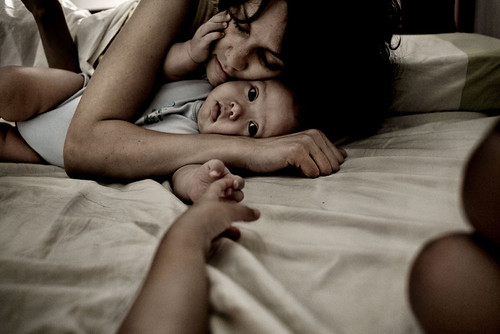 We know it?s true?women have different responses to bipolar disorder than men.
We know it?s true?women have different responses to bipolar disorder than men.
This series about bipolar disorder in women will explore issues specific to females with the condition.
This article touches on the reproductive cycle, pregnancy, and medications that are used and avoided in these processes.
I want to elaborate on these topics and others in the future in order to help the bipolar woman maximize her recovery.
The Reproductive Cycle, Hormones, and Bipolar
As alluded to, the bipolar condition is experienced differently by men than women.
For instance, women experience a higher frequency of depressive episodes compared to their male counterparts.
Also, female hormones and reproductive factors influence the illness?s course and treatment.
In fact, research suggests that in women, hormones may play a role in the development and severity of bipolar disorder.
Hormones and birth control are, in fact, a subject that I talk about with my psychiatrist frequently.
Because our hormones and reproductive cycle are such a big part of our lives, it only makes sense.
When I was 16, I was diagnosed with Pre-menstrual dysphoric disorder (PMDD). This was way before my bipolar diagnosis. Now I see where there is interplay between hormones, the reproductive cycle, and bipolar.
Women with mood disorders experience PMS and PMDD much more frequently and severely than women who do not.
Women who are treated with a holistic approach to their mood disorder and reproductive cycle are more likely to be treated accurately.
The greatest evidence of a hormonal association with bipolar disorder is seen during pregnancy and the postpartum period.
This is what all women like me have anxiety about.
Women that are pregnant or that have recently given birth are seven times more likely than other women to be admitted to the hospital for their bipolar disorder.
They are also twice as likely to have a recurrence of these symptoms.
This is not to say that women with bipolar shouldn?t have children.
In fact, I plan to have a child.
However, it?s important to be cognizant of the fact that our bipolar intermingles with pregnancy and the postpartum period.
Being proactive and planning ahead is a must for bipolar pregnancy.
Treatment for Bipolar in Women
Treatment for bipolar is generally the same in women as in men.
However, special treatment considerations need to be made for some women, especially during pregnancy.
We all know that it is crucial for a pregnant woman with bipolar disorder to continue treatment during the nine months in which she is carrying the child.
Of course, risks to the baby must also be carefully considered.
Doctors prefer older mood stabilizers like lithium, chlorpromazine, and haloperidol during pregnancy because they have shown less risk than some other drugs to the unborn baby.
Also, because they have been used longer than the newer drugs, there is more evidence to suggest the outcome of a pregnancy when using these drugs.
In fact, when treatment is stopped during pregnancy, doctors will try these older drugs if treatment is re-introduced.
Check with your medical treatment team about drugs such as valproic acid and carbamazepine. They are known to cause birth defects.
Valproic Acid
Speaking of valproic acid, girls and women that are on the drug need to be regularly monitored by their doctor.
My psychiatrist won?t even let me touch it, since I am of child-bearing age.
In addition to this, valproic acid can increase levels of male testosterone in the body. This can possibly lead to polycystic ovary syndrome, or PCOS.
PCOS affects the ovaries and leads to obesity, excess body hair, and irregular menstrual cycles.
Tips for Pregnancy
To help lessen symptoms during a bipolar pregnancy, women may benefit from regular psychotherapy, exercise, and stress management, which is good for the woman with bipolar regardless.
What?s Next
This is just the tip of the iceberg about issues affecting women with bipolar disorder.
I?d love to hear what women-focused topics you would like to hear about on Her Bipolar Life!
Please comment below or find me below on Twitter.
?
?
Photo Credit: ![]() CIA DE FOTO via Compfight
CIA DE FOTO via Compfight
????Last reviewed: 18 Mar 2013
APA Reference
Dawkins, K. (2013). Bipolar Disorder in Women: Hormones, Pregnancy, and Medication. Psych Central. Retrieved on March 19, 2013, from http://blogs.psychcentral.com/bipolar-life/2013/03/bipolar-disorder-in-women-hormones-pregnancy-and-medication/
?
London 2012 shot put London 2012 Track And Field Jordyn Wieber michael phelps Kerri Strug Ledecky Nadia Comaneci
কোন মন্তব্য নেই:
একটি মন্তব্য পোস্ট করুন